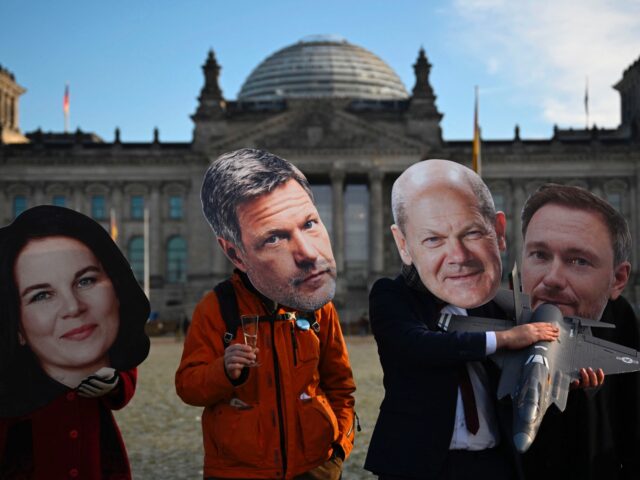Over four in ten Germans believe that the sanctions levied against Moscow in response to the war in Ukraine have done more harm to their country than Russia.
A poll conducted this month by the opinion research institute Forsa on behalf of RTL Germany found that 43 per cent of German citizens feel that the sanctions against Russia have actually inflicted more pain on their country, compared to less than one third (32 per cent) who believe the contrary, and 20 per cent who believe that the sanctions have hit both countries equally.
The disparity was even greater in October at the height of inflation for Germany, when 57 per cent felt their country was harder hit compared to 21 per cent who felt that Russia was impacted more.
While it appears that, through a combination of luck in the form of a mild winter and industry and the public reducing their energy consumption, Germany may have escaped the worst end of the spectrum of the energy crisis such as blackouts or widespread rationing, the economic powerhouse of Europe was deeply impacted economically by the conflict in Ukraine and the reduction in Russian energy that came in response to the Western-backed sanctions on Moscow.
Germany’s Federal Statistical Office reported last month that the nation’s economy shrank by 1.8 per cent over the past year, in large part as a result of the standoff with Russia and the ensuing inflationary crisis, which peaked at 10.4 per cent in October but remained uncomfortably high at 8.6 per cent at the end of the year.
Meanwhile, despite predictions of economic disaster as a result of the Western sanctions, the Russian economy may have only faired slightly worse than the German, with the Kremlin claiming that the Russian GDP contracted by 2.5 per cent in 2022.
Great Reset Fail? Germany Mulls Diverting Green Agenda Cash Aimed at Killing Coal to Arms Industry https://t.co/DvbLoLQgTn
— Breitbart London (@BreitbartLondon) February 5, 2023
Despite the apparent minimal impact on Russia — presuming the Kremlin’s own economic figures are true — former German defence minister turned EU Chief Ursula von der Leyen announced at a joint meeting in Kyiv (Kiev) with Ukraine’s Volodymyr Zelensky last week that the EU is preparing yet another round of sanctions to be imposed later this month.
“We will introduce, with our G7 partners, an additional price cap on Russian petroleum products, and by the 24th of February — exactly one year since the invasion started — we aim to have the 10th package of sanctions in place,” she said.
In addition to further sanctions, the left-wing coalition government in Berlin is set to escalate its military involvement in Ukraine, announcing on Tuesday alongside representatives from Denmark and the Netherlands that they are readying a shipment of at least 100 refurbished German-made Leopard battle tanks to fight against Russia. This is in addition to the commitment made last month to provide Ukraine with a company of the more modern Leopard 2 A6 main battle tanks.
The German government has also ramped up its rhetoric towards Moscow, with Foreign Minister Annalena Baerbock bluntly stating that Europe and her country are in fact in a “war against Russia” in Ukraine, despite claims from other NATO member states that the West is merely assisting Ukraine to defend itself rather than engaging in a direct conflict with the world’s largest holder of nuclear weapons.
Baerbock, the leader of the Green Party in Germany, previously raised eyebrows in September when she proclaimed that her government would be willing to continue to back Ukraine for years “no matter what my German voter thinks.”
This year, former President Trump was proven right in his critiques of the globalist green agenda of the European Union and its reliance on Russian energy, which following the war in Ukraine have both been exposed as devastating failures of leadership. https://t.co/IF2i2mPPG5
— Breitbart News (@BreitbartNews) January 2, 2023
Follow Kurt Zindulka on Twitter here @KurtZindulka

COMMENTS
Please let us know if you're having issues with commenting.